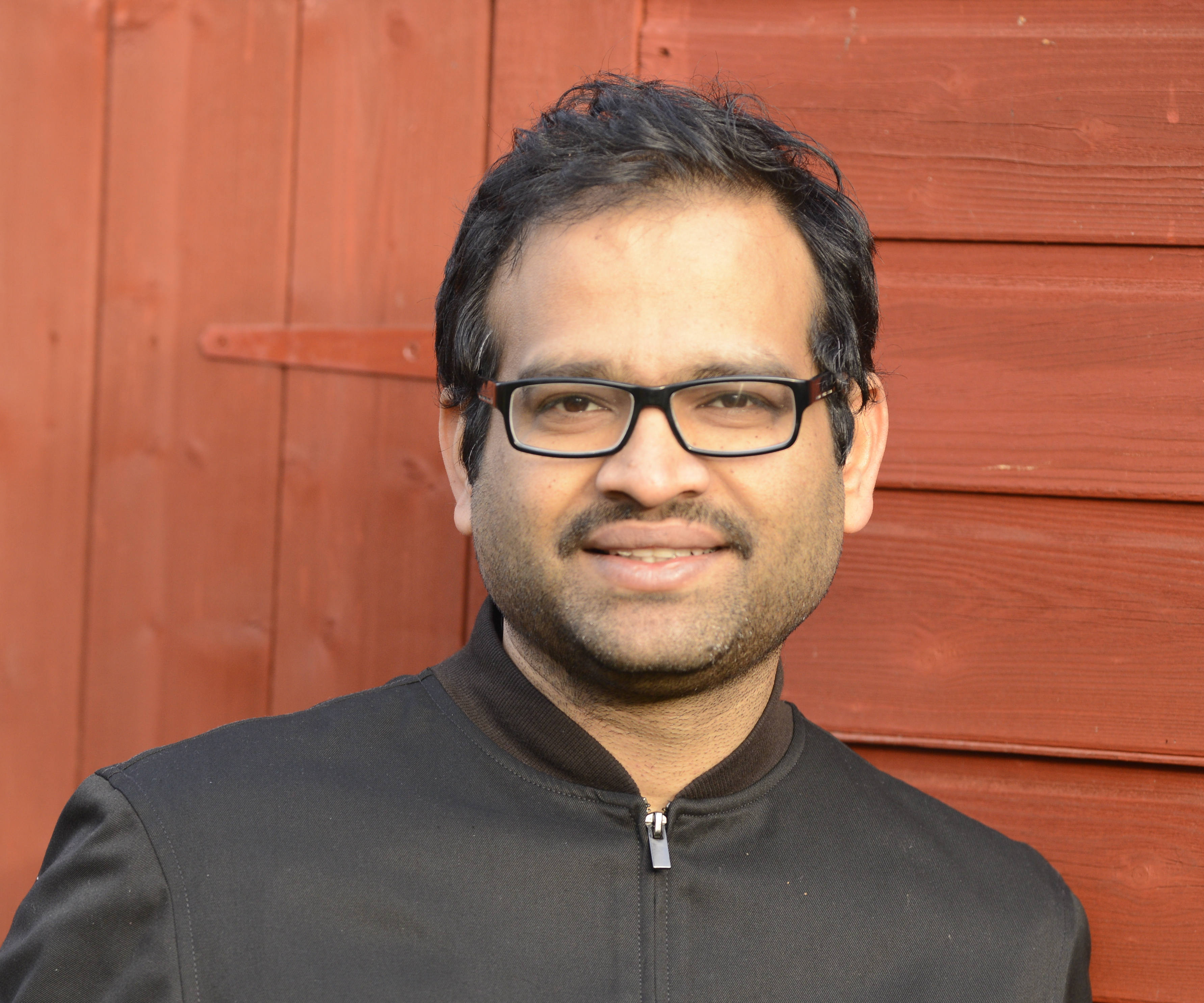
Dr. Krishna Dubba on patents, platforms, and product-led AI
Dr. Krishna Dubba is the Co-Founder and CTO of CoVent, an AI-powered marketplace designed to transform the way sponsorships are discovered and evaluated. He is a serial entrepreneur and deeptech innovator with over a decade of experience at the intersection of artificial intelligence (AI), machine learning (ML), and product development.
 In this Q&A with Startups Magazine, Dr. Dubba discusses CoVent and how the startup is revolutionising event sponsorships. He also shares his views on the ways leaders can create a company culture that embraces AI agents as teammates, and how his own experience working at Nokia Bell Labs and Blue Prism has influenced his approach to building AI products.
In this Q&A with Startups Magazine, Dr. Dubba discusses CoVent and how the startup is revolutionising event sponsorships. He also shares his views on the ways leaders can create a company culture that embraces AI agents as teammates, and how his own experience working at Nokia Bell Labs and Blue Prism has influenced his approach to building AI products.
Could you introduce yourself and tell me about your background?
I’m the Co-Founder and CTO of CoVent, an AI-powered marketplace that will revolutionise how sponsorships are discovered and evaluated, backed by Founders Factory and Pico.
Previously, I co-founded A20 AI, where I led system architecture and backend ML development for enterprise-grade generative AI products. I also founded Jeevi AI, an AI-powered wellbeing mobile app where I developed the recommendation engine and LLM-based chatbot.
Before my startup journey, I led AI R&D at Blue Prism, where I helped build its AI Labs, and spent several years at Nokia Bell Labs and Nokia TECH, working on explainable AI, emotion modelling, and smart assistants. Across these roles, I’ve been awarded multiple patents – nine in total – and published several peer-reviewed research papers.
My foundation in AI research comes from my time as a research fellow at the University of Leeds, where I worked on Defense Advanced Research Projects Agency (DARPA) and EU-funded robotics and ML projects. Earlier in my career, I was with D.E. Shaw, working on real-time trading infrastructure and analytics.
What was your journey into AI and what initially drew you to this field?
My AI journey began in junior college, when I first encountered Eliza, the iconic 1960s chatbot therapist. Initially, I was amazed by how convincingly it could carry a conversation. While its limitations became clear over time, the idea that a lifeless machine could engage in dialogue was magical.
What truly drew me in was the grand ambition behind AI – the quest to make machines that could ponder, think, and reason. Compared to other areas in computer science or engineering, this goal felt deeply profound and intellectually irresistible. The notion that we could breathe cognitive life into inanimate matter was unlike anything else.
Motivated by this vision, I pursued computer science in my undergraduate studies – the only real entry point into AI at the time. I went on to complete a Master’s in AI at the University of Hyderabad, which in 2004 was one of the few dedicated AI programmes in India, and later earned a PhD in AI from the University of Leeds in the UK.
What is CoVent, and what was the inspiration behind starting it?
At CoVent, we’re building a seamless, end-to-end platform that streamlines the entire event sponsorship lifecycle – from discovery and evaluation to contracting and ROI measurement – within a single tool.
The journey began when my co-founder and CEO, Andrew Swisher, worked as an event sponsor at Meltwater, where he experienced firsthand how fragmented and inefficient the event sponsorship process can be. Identifying the right events that attract your ideal customer profile (ICP), navigating negotiations, managing contracts and payments, and tracking ROI – across dozens or even hundreds of event organisers and disparate tools – can quickly become operational chaos.
With CoVent, we’re responding to broader shifts in the digital marketing landscape. Traditional channels are losing effectiveness. Search engines are being disrupted by AI chat interfaces, social platforms are seeing declining engagement and perceived value, and generative AI is contributing to content overload, eroding trust in online media.
In contrast, in-person events are gaining renewed relevance. As digital spaces become noisier and less reliable, professionals are turning to face-to-face experiences to build trust and relationships. Despite cuts to broader marketing budgets, spending on event sponsorships is on the rise, highlighting the growing strategic value of real-world engagements.
What is CoVent’s mssion?
Our mission is to transform the event sponsorship ecosystem by building a seamless, end-to-end platform that connects brands with the right events and organisers. We empower marketers to efficiently discover, negotiate, manage, and measure sponsorship opportunities, while equipping event organisers with the tools and visibility they need to attract and retain ideal sponsors.
In a digital landscape that’s increasingly noisy and less effective, we believe in the growing power of in-person experiences. Our goal is to make sponsorships simpler, smarter, and more impactful for everyone involved.
What role does AI play in CoVent’s platform, and how does it enhance the event sponsorship process?
AI is foundational to CoVent’s platform, streamlining and optimising every stage of the event sponsorship lifecycle. We use a combination of large language models (LLMs) and multi-agent systems to scrape and structure data from tens of thousands of events across the web. This gives us a rich, up-to-date database of sponsorship opportunities and acts as a powerful inbound channel to attract event organisers to the platform, helping them showcase their events to relevant sponsors more effectively.
Our AI-powered recommendation engine analyses sponsor profiles and event characteristics to deliver laser-focused, high-quality matches. This ensures sponsors can discover events aligned with their ideal customer profiles (ICPs), maximising relevance and impact.
Further, our system continuously monitors digital signals such as mentions, trends, and engagement metrics across the web to provide deeper insights and better ROI attribution for sponsorship investments.
By automating and enhancing discovery, matching, and measurement, AI transforms a traditionally manual and fragmented process into one that is efficient, data-driven, and value-generating for sponsors and event organisers.
How can AI leaders create a company culture that embraces AI agents as teammates?
Creating this culture starts with fostering the right mindset within human teams. At CoVent, we’ve built a culture grounded in curiosity and a healthy lack of fear around failure. This openness encourages us to experiment, explore unconventional solutions, and continuously adopt new approaches, including those involving AI.
A key part of our philosophy is viewing AI as an augmenting tool, not a replacement. We design and use AI systems to enhance human creativity, efficiency, and decision-making, rather than to displace people. This distinction is crucial, helping our team feel safe, supported, and empowered when interacting with AI.
By encouraging experimentation, supporting learning through iteration, and emphasising collaboration between humans and machines, we create an environment where AI is seen as a valuable teammate. In this way, AI becomes a trusted contributor to the problem-solving process rather than just another piece of software.
What challenges have you faced on the journey so far, and how have you overcome them?
On the technical front, a primary challenge has been the immaturity of tools for building our AI-powered multi-agent systems. This technology, while foundational to our platform's ability to intelligently scrape data and deliver laser-focused recommendations, lacks the established frameworks and robust libraries common in more mature software development. Our team often has to innovate and build custom solutions, navigating complexities in design, debugging, and integration without a clear roadmap.
Beyond the technical aspects, we've faced the crucial task of quickly validating our market assumptions. Building an entirely new, end-to-end platform for the fragmented event sponsorship ecosystem requires us to constantly test if our proposed solutions resonate. This involves confirming that brands are willing to centralise their sponsorship activities with us, that event organisers will embrace our platform for showcasing their events, and most importantly, that our AI-driven recommendations translate into better ROI and more impactful connections for both sides of the marketplace. It's about ensuring our vision aligns with real-world needs and adoption.
What have been the highlights so far?
A key highlight is the rapid expansion of our database, now boasting over 100,000 events. This scale was driven by our proprietary multi-agent system, which tirelessly scrapes the web and constantly adds new, enriched event data using millions of data points. This sophisticated AI has allowed us to quickly approach the breadth of well-funded, incumbent competitors.
Beyond data volume, our AI-powered recommendation engine is providing accurate matching, ensuring we don't overwhelm busy marketers. This precision has already led to impactful connections, with hundreds of event organisers and sponsors successfully matched and actively negotiating valuable partnerships on our platform.
What lessons from your time at companies like Nokia Bell Labs and Blue Prism have most influenced your approach to building AI products?
My time at deeptech powerhouses like Nokia Bell Labs and pioneering AI companies such as Blue Prism profoundly shaped how I approach building AI products at CoVent. As a scientist, I learned to validate thoroughly through experiments and not be afraid of failures. This scientific mindset is invaluable in a startup; it means we can rapidly test new ideas, discard what doesn't work, and pivot efficiently, accelerating our learning cycles and product development. My background also instilled the conviction that deep technology is essential to gain a true edge over traditional software. That's why we're embedding state-of-the-art AI, including LLMs and multi-agent systems, right at the core of CoVent, ensuring our solutions aren't just innovative but fundamentally transformative.
Those experiences also taught me the critical balance between a rapid research-to-product path and unwavering robustness. It's not enough for our AI to be cutting-edge; it needs to be reliable, scalable, and trustworthy for enterprise customers. We meticulously build in safeguards and ensure reliability as we transition our research findings into live products. This approach means we can push the boundaries of AI while still providing a dependable and valuable tool that delivers consistent results in a mission-critical context for our clients.
What’s next for the company, and what goals do you have for the next year?
Our primary business and product focus is to fine-tune our platform to reduce any friction within the event sponsorship pipeline. This means constantly enhancing the user experience, streamlining workflows from discovery and negotiation to contracting and management, ensuring a seamless journey for sponsors and event organisers. Concurrently, we are dedicated to significantly improving our technology for ROI reports, providing clearer and more actionable insights into sponsorship effectiveness.
Technologically, we are pushing the boundaries with R&D in Causal AI. Our goal is to develop new tools that empower sponsors to better evaluate their sponsorship portfolio by understanding direct causal impacts. This will allow them to play with multiple scenarios, such as adjusting budgets or event types, and immediately see the predicted outcomes, offering a deeper level of strategic planning and optimisation previously unavailable in this space.
Looking to the future
Beyond our immediate roadmap, we're keenly aware of AI's rapid evolution and its disruptive potential, both positive and negative. It's not just big tech making huge impacts; we've seen, both in the past and present, how startups also drive immense changes in the technology and business landscape. As tech leaders and entrepreneurs, we believe it's crucial to have strong foresight into what's next, seize these opportunities by thinking big, and always leverage these powerful advancements for the greater good of humanity while acting responsibly.
For more startup news, check out the other articles on the website, and subscribe to the magazine for free. Listen to The Cereal Entrepreneur podcast for more interviews with entrepreneurs and big-hitters in the startup ecosystem.

